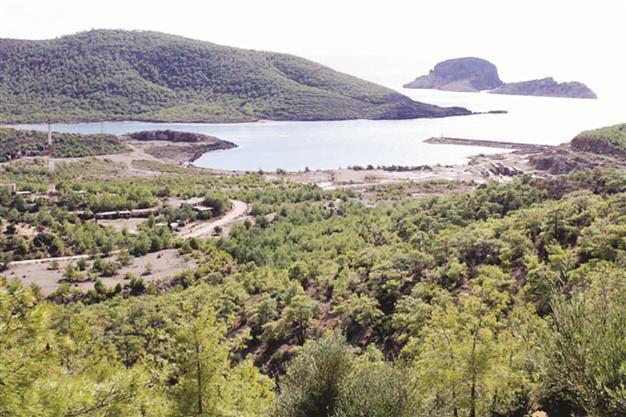Draft law eases land fill on local coast lines
ISTANBUL - Anatolia News Agency

Akkuyu in southern Turkey is the proposed site for Turkey’s first nuclear power plant. The draft would enable such plants to be built closer to coast lines. DHA photo
Akkuyu in southern Turkey is the proposed site for Turkey’s first nuclear power plant. The draft would enable such plants to be built closer to coast lines.The Environment and Urban Planning Ministry has drafted a law easing land fill on the coast lines of Turkey, while stripping them of the protection provided by the Law on the Protection of Cultural and Natural Heritage.
The provisions of this law regarding development plans for protection will not be applied to coast lines and land fill zones, an article in the draft Building Inspection Law says.
According to the draft, plans regarding land fills and desiccations will have to be submitted to the responsible governorship. The governorship will then send the plan to the Environment and Urban Planning Ministry. Institutions and organizations from which the ministry will ask opinions will have to submit their stance within 30 days. If they fail, the ministry will assume that an opinion in favor has been given. The ministry will then make the final decision on all proposed plans.
The created land will be under the state’s possession and ordinance and can not privately owned, according to the draft.
The Union of Chambers of Turkish Engineers and Architects (TMMOB) criticized the whole draft in a written opinion submitted to the ministry.
The statement said land fills and desiccations would change the original form and morphology of coasts, and that all archeological sites, historical castles, shipyards and cultural treasures would be left unprotected.
Energy facilities no longer need to be far from coast
The draft also changes the sixth article of the Law on Coasts by lifting the requirement to establish energy facilities a particular distance away from coast lines.
State-run energy production and storage facilities can be built on coast lines. This regulation will pave the way to construct nuclear power plants, spent fuel pools, cooling storages, natural gas storage facilities and thermal power plants.
















